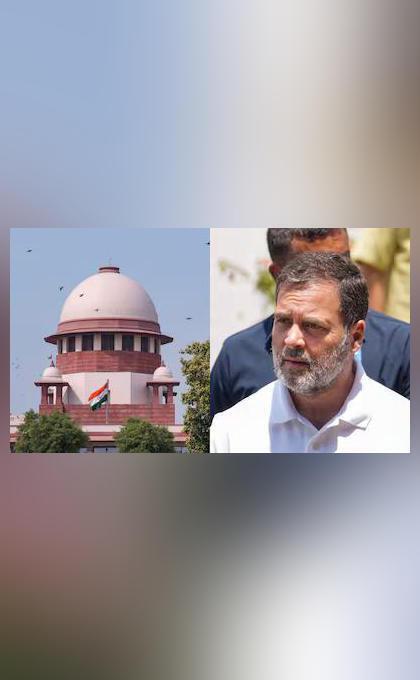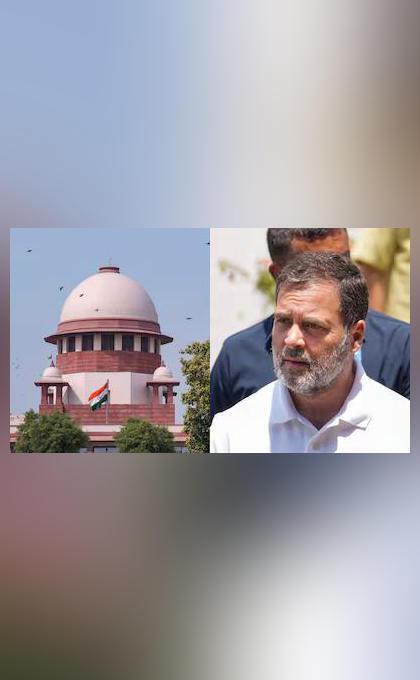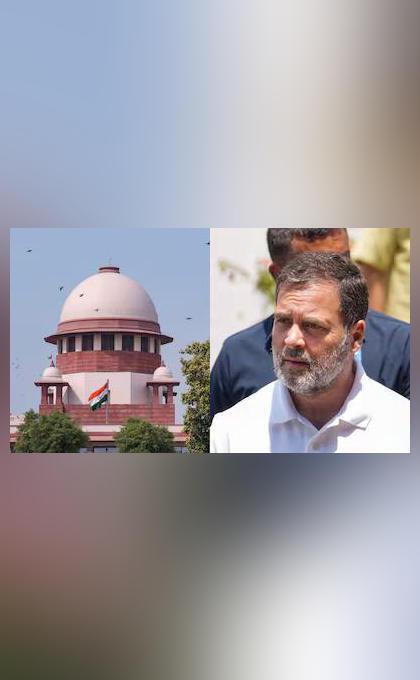
Why Ask On Social Media & Not In Parliament: SC To Rahul On ‘Land Grab’ Claim
The Supreme Court of India recently reprimanded Congress leader Rahul Gandhi over his claim that China had grabbed 2,000 square kilometers of Indian land. The court’s sharp rebuke was in response to Gandhi’s remarks about the Indian Army, which had sparked a defamation case against him. The court stayed the case, but not before questioning Gandhi’s methodology in making such claims.
Gandhi had made the claim about China’s alleged land grab during a rally in Wayanad, Kerala, in 2020. He had alleged that China had occupied 2,000 square kilometers of Indian land, claiming that this was a result of the Modi government’s alleged weakness in dealing with China. The remark was met with widespread criticism, with many accusing Gandhi of spreading misinformation.
The Supreme Court, while staying the defamation case against Gandhi, expressed its displeasure with his methodology in making such claims. The court asked Gandhi how he knew that 2,000 square kilometers of Indian land had been occupied by China. The court’s question was not just rhetorical; it was a legitimate one, given the lack of credible evidence to support Gandhi’s claim.
The court’s reprimand of Gandhi was not limited to his methodology. The court also questioned his decision to make such claims on social media rather than in Parliament. The court observed that if Gandhi had any evidence to support his claim, he should have brought it to the attention of the Parliament, rather than making it on social media.
The court’s observation is a valid one. Social media platforms are not a suitable forum for making serious claims about national security or foreign policy. While social media can be a useful tool for disseminating information, it is not a substitute for the formal channels of communication provided by Parliament.
Parliament is the highest forum of democratic expression in a country, and it is where important issues like national security and foreign policy are discussed. If Gandhi had any evidence to support his claim, he should have presented it to the Parliament, rather than making it on social media.
The court’s reprimand of Gandhi has sparked a debate about the role of social media in politics. While social media can be a useful tool for politicians, it is not a substitute for the formal channels of communication provided by Parliament. Politicians should not use social media to make serious claims about national security or foreign policy without providing credible evidence to support their claims.
The court’s reprimand of Gandhi is also a reminder of the importance of accountability in politics. Politicians who make serious claims about national security or foreign policy should be held accountable for those claims. They should be required to provide credible evidence to support their claims, and they should be held responsible if their claims are found to be false or misleading.
In conclusion, the Supreme Court’s reprimand of Rahul Gandhi over his ‘China grabbed 2,000 sq km of Indian land’ claim is a timely reminder of the importance of accountability in politics. Politicians who make serious claims about national security or foreign policy should be held accountable for those claims, and they should be required to provide credible evidence to support their claims. Social media is not a suitable forum for making serious claims about national security or foreign policy, and politicians should use formal channels of communication provided by Parliament to discuss such issues.



